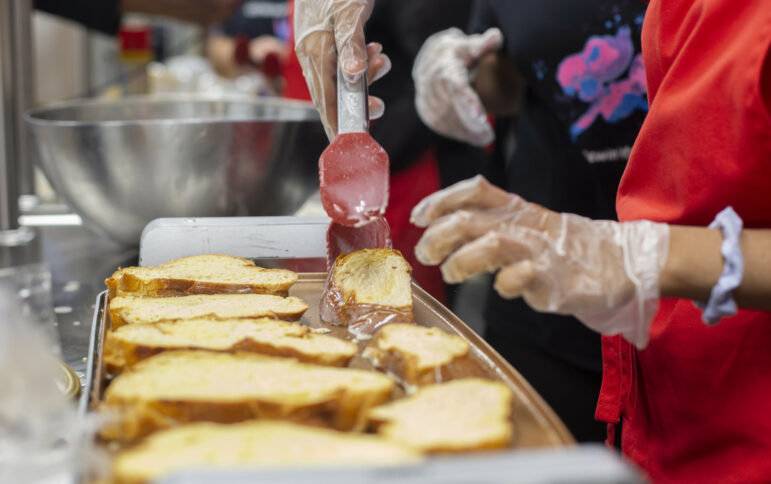“We must recognize that restaurant workers, many of whom have been doing their jobs for at least a decade, are the same as those in other industries who deserve equitable pay, paid time off, health care, and other job protections to ensure quality of life for themselves and their families.”

NYC Council/John McCarten
I am a Black man, an immigrant from the Ivory Coast. As an advocate for fair labor practices, I lead the nation’s oldest and largest restaurant workers-led nonprofit that serves workers who are mostly women, immigrants and people of color—and who are among the most overworked and lowest paid workforce in America.
As we mark the beginning of Black History Month, I honor the remarkable story and contributions of Black people reflected in the fabric of American life. I recognize the greatest movements and institutions that Black people have built to stress the significance of justice and freedom, resiliency and fair rights under the law.
But on this momentous occasion, I also want to face the hard truth and reflect on the long-standing race and gender-based inequities that restaurant workers experience each day—from widening pay gaps and discriminatory hiring and promotion processes to the lack of access to job benefits. Inequities are rampant in the restaurant industry, so rampant that we actually don’t need a handful of facts and numbers to know this. We only need to listen to the stories of restaurant workers who experience it every day in many different ways.
In New York, Black History Month—with the theme on Black Resistance—couldn’t be more relevant this year. Two months ago, we hailed the passage of the state’s pay transparency legislation, requiring employers with four or more employees to list and disclose salary ranges for all advertised jobs and promotions. Restaurant workers celebrated the legislation, and we agree that pay equity starts with pay transparency.
But while this landmark measure helps reduce discriminatory wage-setting and hiring practices as well as level the playing field for all workers—regardless of race, gender, age or religion—to equally negotiate their salary with employers, I must admit that it is not sufficient to address job inequities and protect the overall welfare of workers.
Pay transparency legislation isn’t enough to narrow disparities when the majority of restaurant workers still do not have full access to economic opportunities. Our findings show that restaurant workers, particularly women and people of color, continue to bear the brunt of the pandemic. Poor working conditions, no mandatory time off, and ongoing health and safety concerns are powerful barriers to a just recovery, leading to staffing or restaffing challenges for employers.
The likelihood of restaurant workers refusing to return or even leaving the industry remains high unless employers and the government ensure robust employee protections, including paid leave policies, an employer-sponsored retirement savings plan, expanded access to healthcare, and higher wages compensating for lost income and ongoing health risks.
We must recognize that restaurant workers, many of whom have been doing their jobs for at least a decade, are the same as those in other industries who deserve equitable pay, paid time off, health care, and other job protections to ensure quality of life for themselves and their families. And in the same breath, along with salary information, these protections and benefits need to be disclosed in job postings as a powerful incentive for employers to provide them. Restaurant workers, after all, prefer employers who are transparent not only about wages but also the benefits that they would get.
When I came to the U.S. in 1996, my first job in the restaurant industry was at the Windows on the World, the storied restaurant on the 107th floor of the World Trade Center. In times of health crises or disasters, I know that job protections are vital. Workers shouldn’t have to teeter between health and a paycheck.
Providing workers the job protections they need also benefits restaurant employers: it brings positive cultural changes, emboldens trust and morale within the company and, in turn, attracts and retains more competent workers. Who would not want to work in a restaurant where workers are respected and dignified, their voices are heard and recognized, and where there is clarity about how their pay is set?
Black History Month is a critical opportunity to articulate a strong vision for restaurant workers. The industry is not yet color-blind, as shown by the high rates of occupational segregation, but we can make our economy work equally for everyone. We can work together to create good and inclusive jobs that enable workers to thrive, companies to be more productive and profitable, and communities to benefit from healthy, sustainable economies.
I know we can.
Dr. Sekou Siby is the president and CEO of the Restaurant Opportunities Centers (ROC) United. A 9/11 survivor, he was a former worker at the Windows on the World.







